Unit 2 Keeping Healthy Topic 1 You should brush your teeth twice a day. Section A 课件 29张PPT
文档属性
| 名称 | Unit 2 Keeping Healthy Topic 1 You should brush your teeth twice a day. Section A 课件 29张PPT |  | |
| 格式 | ppt | ||
| 文件大小 | 2.3MB | ||
| 资源类型 | 教案 | ||
| 版本资源 | 仁爱科普版 | ||
| 科目 | 英语 | ||
| 更新时间 | 2020-08-26 21:02:45 | ||
图片预览

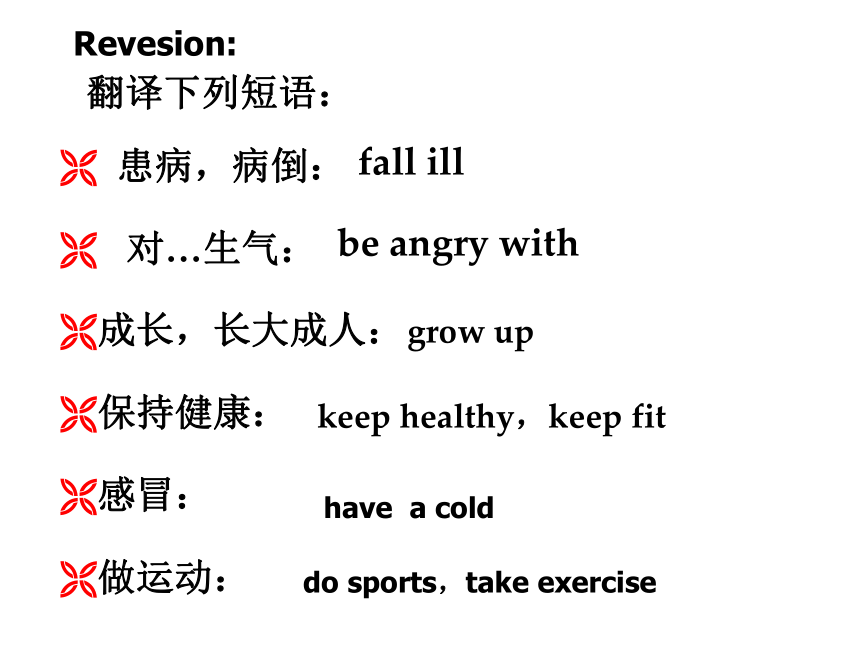
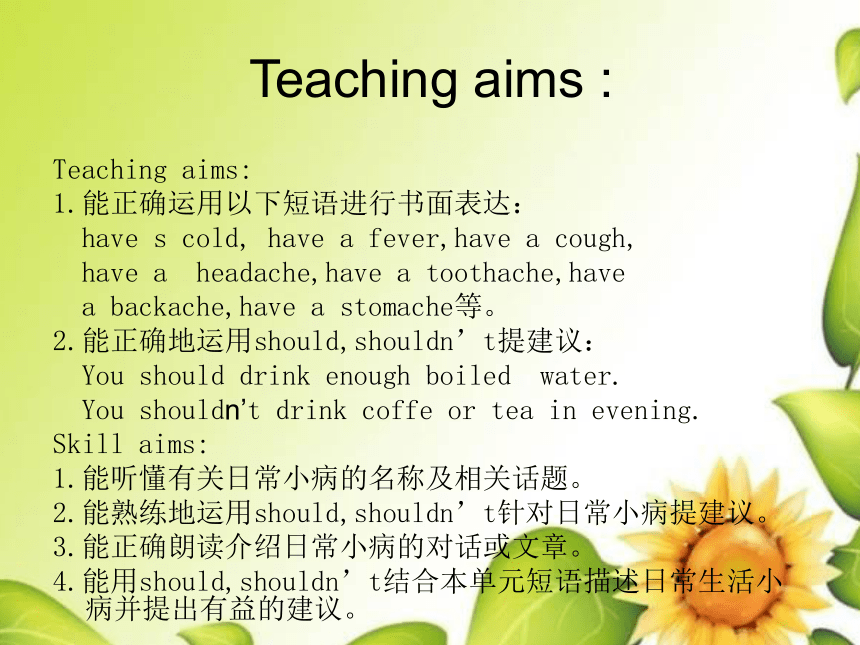
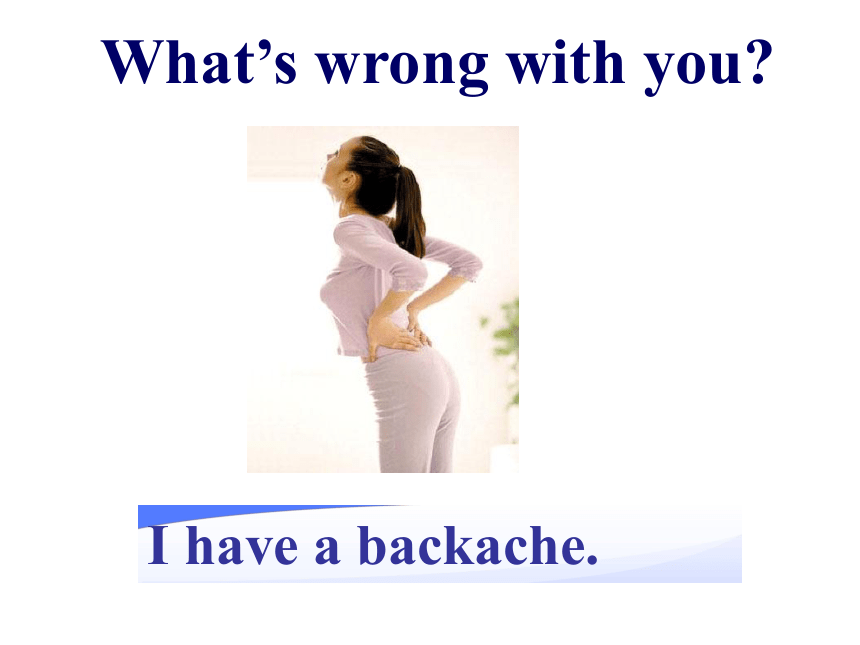
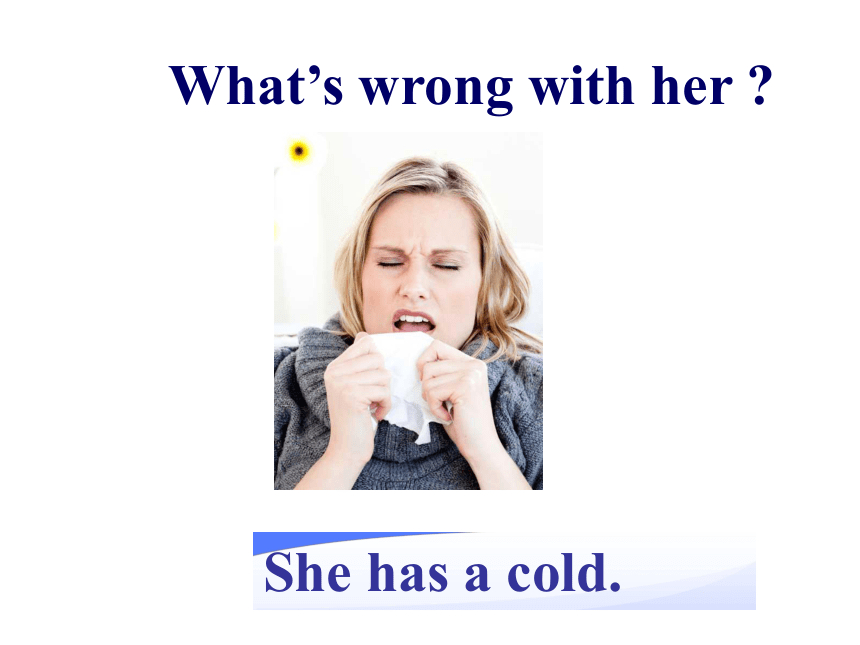
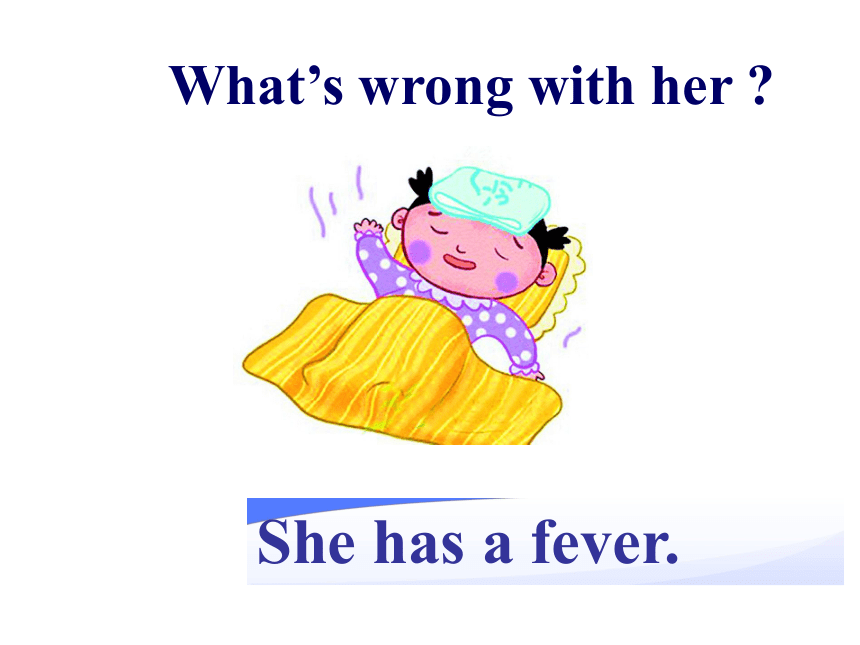
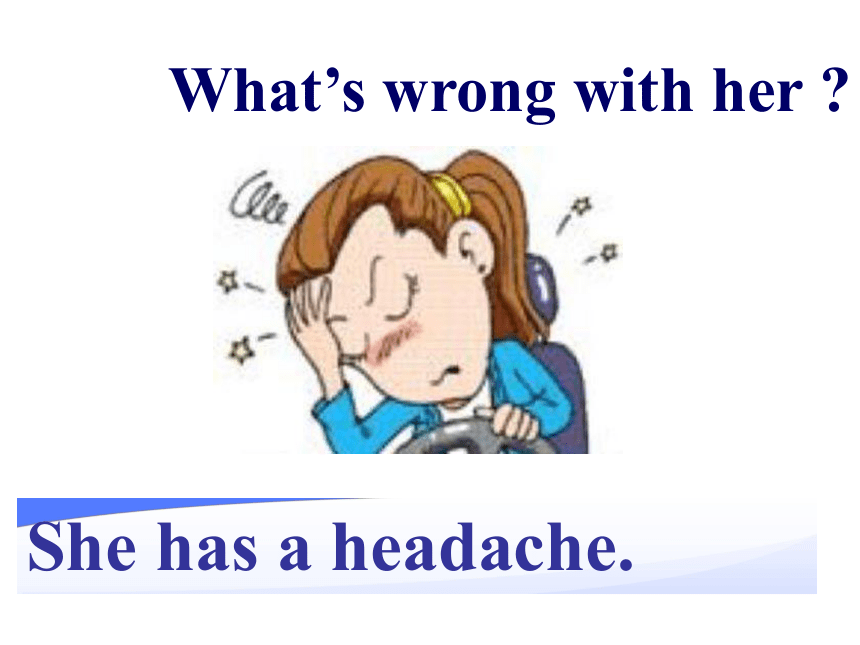
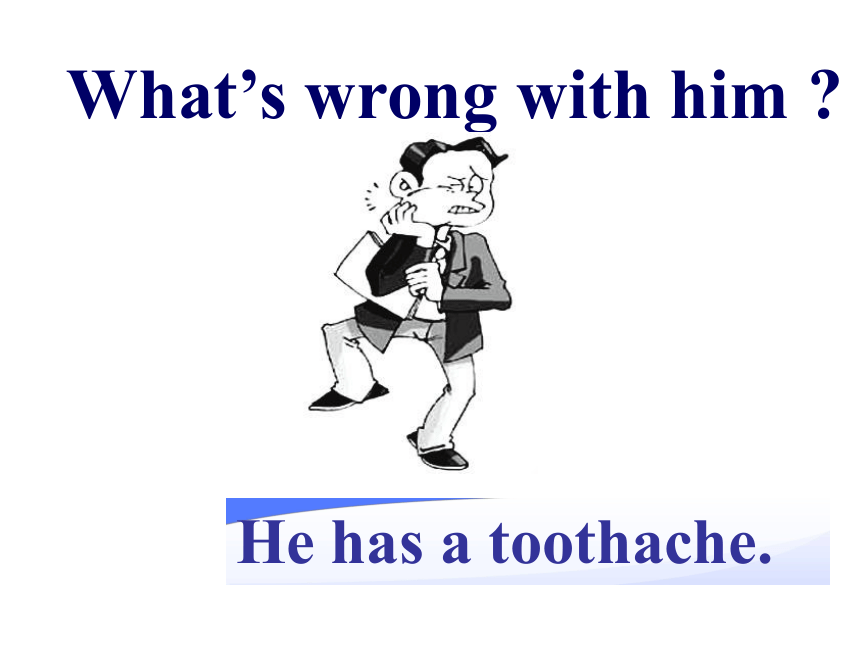
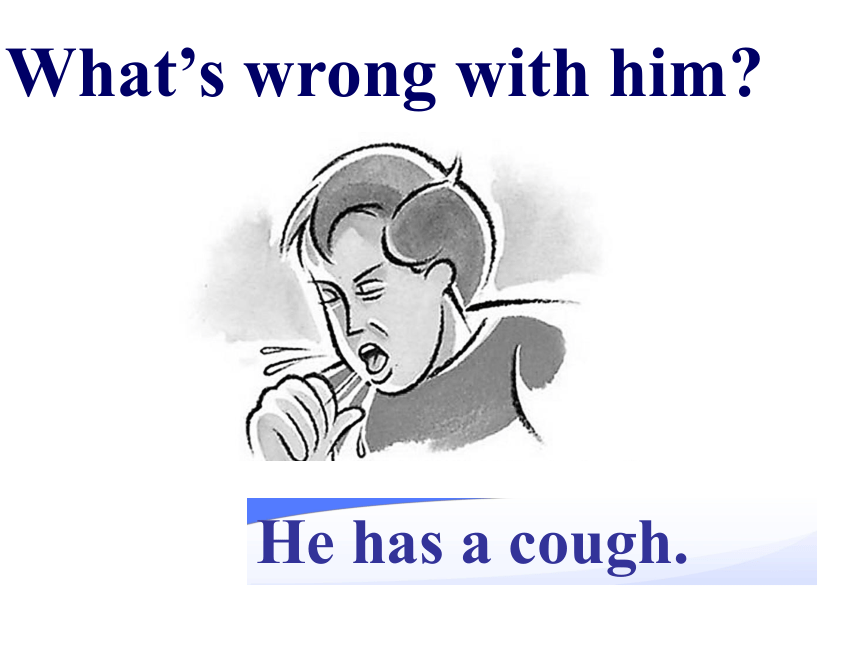
文档简介
患病,病倒:
对…生气:
成长,长大成人:
保持健康:
感冒:
做运动:
fall ill
be angry with
grow up
keep healthy,keep fit
have a cold
do sports,take exercise
翻译下列短语:
Revesion:
Teaching aims :
Teaching aims:
1.能正确运用以下短语进行书面表达:
have s cold, have a fever,have a cough,
have a headache,have a toothache,have
a backache,have a stomache等。
2.能正确地运用should,shouldn’t提建议:
You should drink enough boiled water.
You shouldn’t drink coffe or tea in evening.
Skill aims:
1.能听懂有关日常小病的名称及相关话题。
2.能熟练地运用should,shouldn’t针对日常小病提建议。
3.能正确朗读介绍日常小病的对话或文章。
4.能用should,shouldn’t结合本单元短语描述日常生活小病并提出有益的建议。
What’s wrong with you?
I have a backache.
What’s wrong with her ?
She has a cold.
What’s wrong with her ?
She has a fever.
What’s wrong with her ?
She has a headache.
What’s wrong with him ?
He has a toothache.
What’s wrong with him?
He has a cough.
illnesses
感冒
发烧
咳嗽
头痛
牙痛
背痛
胃痛
have a cold
have a fever
have a cough
have a headache
have a toothache
have a backache
have a stomachache
1. You don’t look well.
look为_______动词,后面跟_____词 构成系表结构。
感官系
形容
well在此句中是_____词,
形容
意为:
_________________
身体健康的,身体好的。
看起来身体好
类似的系动词有:闻起来____ 看起来___
感觉起来____ 尝起来____ 变得___________ be , keep
smell
look
feel
taste
turn;get; become
1.The cake tastes _____.
A. bad B. badly C. terriblely
2.Please keep _____.
A. quite B. quietly C. quiet
A
C
1. You don’t look well.
。
well也可作____词,意为“好,令人满意地。”
副
他英语说得好。
He speaks English well.
看起来身体好
She is _____ at English and she can speak English very ____.
A. good ; good B. well; well
C.good; well D. well ; good
C
2.What’s wrong with you? 你怎么了?
相当于What’s the matter with you?两者常用来询问人或事物的异常情况。如
你的自行车出了什么毛病?
还可以说What’s wrong with him\her?
回答:He\She has…
What’s wrong with your bike?
3. I have a toothache.
have a+(身体某部位的名词+ache),表示身体某处疼痛。
have a stomachache
have a backache
have a headache
胃疼
背疼
头疼
我牙疼。
4.I’m sorry to hear that.
听到这个消息我很难过。
也可简略地说成Sorry to hear that.用来表达对他人的关爱之情。
如果听到的是好消息,则说 (I am) so glad to hear that。
5. You should see a dentist.
should是情态动词, 后面加动词原形, 表示有责任和义务,意为“应该”, 常用于向别人提建议或告戒别人。否定句型为 You shouldn’t+动词原形。
e.g. You should get up early every day.
You shouldn’t watch TV too much.
看牙医
6. get well 好起来
I have a headache.
You should _______________________.
stay in bed and have a good sleep
I have a fever.
You should ______________________.
drink enough boiled water
I can’t sleep well at night.
You shouldn’t ______________________.
drink coffee or tea in the evening
I have a backache.
You shouldn’t ____________.
lift heavy things
1. Drink enough boiled water.
enough意为“足够的”,前后可以接__词。只能前接__________。
名
形容词或副词
足够的钱_____________________
足够高__________
足够快_____________
enough money/ money enough
tall enough
fast enough
1.我有足够的时间去做运动。
___________________
2.他够龄上学了。
_____________________
I have enough time to do sports.
He is old enough to go to school.
boiled water 开水
...enough ..to do sth足够...能够做某事
I have a ____.
You should _______.
I have a ____.
You should _______.
I have a ____.
You shouldn’t _______.
英汉互译
have a stomachache _____
2. have a fever ______
3. take a rest ________
4. have a toothache_____
5. have a cold _______
6. see a doctor _____
7. 你应当早点上床睡觉。 _____________________
8. 你妈妈看起来气色不太好。___________________
9. 你应该多喝水。 ________________________
10. 你怎么啦? ____________________________
胃痛
发烧
休息一下
牙痛
患感冒
看医生
You should go to bed early.
Your mother doesn’t look well.
You should drink more water.
What’s wrong/the matter with you?
I have a headache.
2. I have a cold.
3. I have a toothache.
Summary
You should have a good rest.
You should go to see a doctor.
You shouldn’t eat too much candy.
完成句子:
1.听到那件事,我感到很难过。
I am __ __ __ that.
2.你应该足够的开水。
You __ drink __ __ __.
3.我希望你能快点好。
I hope __ __ __ soon.
4.You should drink lots of water.(改否定句)
You __ __ lots of water.
5.Jim has a toothache.(划线提问)
__ __ with Jim?
Homework
Make a dialog with your classmates like this:
A: Hi … What’s wrong?
B: I have a …
A: I’m sorry to hear that. You should …
B: I think I will.
A: I hope …
B: Thank you.
对…生气:
成长,长大成人:
保持健康:
感冒:
做运动:
fall ill
be angry with
grow up
keep healthy,keep fit
have a cold
do sports,take exercise
翻译下列短语:
Revesion:
Teaching aims :
Teaching aims:
1.能正确运用以下短语进行书面表达:
have s cold, have a fever,have a cough,
have a headache,have a toothache,have
a backache,have a stomache等。
2.能正确地运用should,shouldn’t提建议:
You should drink enough boiled water.
You shouldn’t drink coffe or tea in evening.
Skill aims:
1.能听懂有关日常小病的名称及相关话题。
2.能熟练地运用should,shouldn’t针对日常小病提建议。
3.能正确朗读介绍日常小病的对话或文章。
4.能用should,shouldn’t结合本单元短语描述日常生活小病并提出有益的建议。
What’s wrong with you?
I have a backache.
What’s wrong with her ?
She has a cold.
What’s wrong with her ?
She has a fever.
What’s wrong with her ?
She has a headache.
What’s wrong with him ?
He has a toothache.
What’s wrong with him?
He has a cough.
illnesses
感冒
发烧
咳嗽
头痛
牙痛
背痛
胃痛
have a cold
have a fever
have a cough
have a headache
have a toothache
have a backache
have a stomachache
1. You don’t look well.
look为_______动词,后面跟_____词 构成系表结构。
感官系
形容
well在此句中是_____词,
形容
意为:
_________________
身体健康的,身体好的。
看起来身体好
类似的系动词有:闻起来____ 看起来___
感觉起来____ 尝起来____ 变得___________ be , keep
smell
look
feel
taste
turn;get; become
1.The cake tastes _____.
A. bad B. badly C. terriblely
2.Please keep _____.
A. quite B. quietly C. quiet
A
C
1. You don’t look well.
。
well也可作____词,意为“好,令人满意地。”
副
他英语说得好。
He speaks English well.
看起来身体好
She is _____ at English and she can speak English very ____.
A. good ; good B. well; well
C.good; well D. well ; good
C
2.What’s wrong with you? 你怎么了?
相当于What’s the matter with you?两者常用来询问人或事物的异常情况。如
你的自行车出了什么毛病?
还可以说What’s wrong with him\her?
回答:He\She has…
What’s wrong with your bike?
3. I have a toothache.
have a+(身体某部位的名词+ache),表示身体某处疼痛。
have a stomachache
have a backache
have a headache
胃疼
背疼
头疼
我牙疼。
4.I’m sorry to hear that.
听到这个消息我很难过。
也可简略地说成Sorry to hear that.用来表达对他人的关爱之情。
如果听到的是好消息,则说 (I am) so glad to hear that。
5. You should see a dentist.
should是情态动词, 后面加动词原形, 表示有责任和义务,意为“应该”, 常用于向别人提建议或告戒别人。否定句型为 You shouldn’t+动词原形。
e.g. You should get up early every day.
You shouldn’t watch TV too much.
看牙医
6. get well 好起来
I have a headache.
You should _______________________.
stay in bed and have a good sleep
I have a fever.
You should ______________________.
drink enough boiled water
I can’t sleep well at night.
You shouldn’t ______________________.
drink coffee or tea in the evening
I have a backache.
You shouldn’t ____________.
lift heavy things
1. Drink enough boiled water.
enough意为“足够的”,前后可以接__词。只能前接__________。
名
形容词或副词
足够的钱_____________________
足够高__________
足够快_____________
enough money/ money enough
tall enough
fast enough
1.我有足够的时间去做运动。
___________________
2.他够龄上学了。
_____________________
I have enough time to do sports.
He is old enough to go to school.
boiled water 开水
...enough ..to do sth足够...能够做某事
I have a ____.
You should _______.
I have a ____.
You should _______.
I have a ____.
You shouldn’t _______.
英汉互译
have a stomachache _____
2. have a fever ______
3. take a rest ________
4. have a toothache_____
5. have a cold _______
6. see a doctor _____
7. 你应当早点上床睡觉。 _____________________
8. 你妈妈看起来气色不太好。___________________
9. 你应该多喝水。 ________________________
10. 你怎么啦? ____________________________
胃痛
发烧
休息一下
牙痛
患感冒
看医生
You should go to bed early.
Your mother doesn’t look well.
You should drink more water.
What’s wrong/the matter with you?
I have a headache.
2. I have a cold.
3. I have a toothache.
Summary
You should have a good rest.
You should go to see a doctor.
You shouldn’t eat too much candy.
完成句子:
1.听到那件事,我感到很难过。
I am __ __ __ that.
2.你应该足够的开水。
You __ drink __ __ __.
3.我希望你能快点好。
I hope __ __ __ soon.
4.You should drink lots of water.(改否定句)
You __ __ lots of water.
5.Jim has a toothache.(划线提问)
__ __ with Jim?
Homework
Make a dialog with your classmates like this:
A: Hi … What’s wrong?
B: I have a …
A: I’m sorry to hear that. You should …
B: I think I will.
A: I hope …
B: Thank you.
同课章节目录
- Unit 1 Playing Sports
- Topic 1 I'm going to play basketball.
- Topic 2 I'll kick you the ball again.
- Topic 3 The school sports meet is coming.
- Unit 2 Keeping Healthy
- Topic 1 You should brush your teeth twice a day.
- Topic 2 I must ask him to give up smoking.
- Topic 3 Must we exercise to prevent the flu?
- Unit 3 Our Hobbies
- Topic 1 What's your hobby?
- Topic 2 What sweet music!
- Topic 3 What were you doing at this time yesterday
- Unit 4 Our World
- Topic 1 What's the strongest animal on the farm?
- Topic 2 How can we protect ourselves from the eart
- Topic 3 The Internet makes the world smaller.
